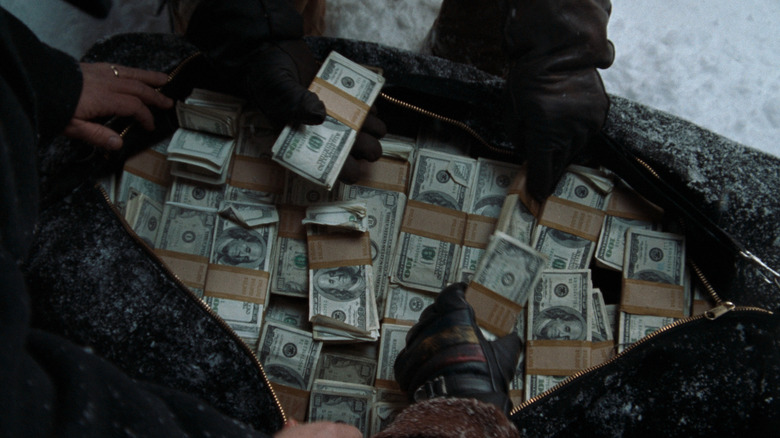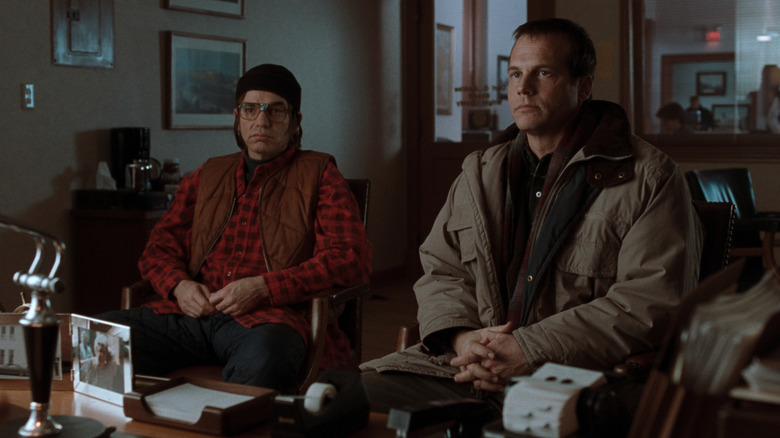Sam Raimi's '90s Crime Thriller With A Perfect Score From Roger Ebert Is A Must-Watch
Roger Ebert had a strong constitution when it came to on-screen violence, but he had zero tolerance for films he viewed as circuses of wanton cruelty. He abhorred the slasher genre and railed against cheap nihilism. But he was rattled by the unnervingly justified savagery of Wes Craven's "Last House on the Left" (which he gave three-and-a-half stars), and wrote in 1996 that Joel and Ethan Coen's hilariously bleak and bloody "Fargo" was one of the best movies he'd ever seen. Ebert would follow filmmakers deep into the darkness if they gave him relatable characters.
Sam Raimi's "A Simple Plan" a straight-faced, snowbound companion piece to "Fargo;" it was a grim departure for its director (whose slapstick gorefest "Evil Dead 2" tickled Ebert), and it ends on a wincingly nihilistic note. It's a hard movie to watch, as it features a handful of characters making poor decisions just about every step of the way until everyone is dead (physically or spiritually). Ebert absolutely loved it.
The Chicago Sun-Times critic gave the film a four-star rave and slotted it at number four on his 1998 top 10 list. While Ebert was never more entertaining as a writer than when he was eviscerating a movie he hate, hate, hated, he was at his very best when digging into a film that stirred him. And his glowing review of "A Simple Plan" is a joy to read.
Sam Raimi's A Simple Plan was Ebert's kind of downward spiral
In the first two paragraphs of Ebert's review, he mentions the stakes (that the characters are confronted with an unexpected $4 million windfall), but he mostly focuses on the struggles facing the main characters of Hank Mitchell (Bill Paxton), his wife Sarah (Bridget Fonda, whom we dearly miss), and his glum ne'er-do-well brother Jacob (Billy Bob Thornton). He waits until the third paragraph to discuss the premise in detail, which, briefly, finds Hank, Jacob, and Jacob's sketchy best friend Lou (Brett Briscoe) stumbling across a crashed plane deep in the Minnesota woods. Inside is a dead pilot and $4 million in cash. This would be life-changing money for all three. They reason that it's probably drug money, so why not take it? This is the moral compromise that, to cite another Raimi classic, drags them to hell.
The highlight of Ebert's review comes when he compares "A Simple Plan" to another dark movie from 1998, which he utterly loathed. Per Ebert:
"Like the reprehensible 'Very Bad Things,' it is about friends stumbling into crime and then stumbling into bigger crimes in an attempt to conceal their guilt. One difference between the two films is that 'A Simple Plan' faces its moral implications, instead of mocking them. We are not allowed to stand outside the story and feel superior to it; we are drawn along, step by step, as the characters make compromises that lead to unimaginable consequences."
Listen to Ebert on this one. "A Simple Plan" is one of Raimi's very best movies, one that is sadly relevant to our troubling times.

